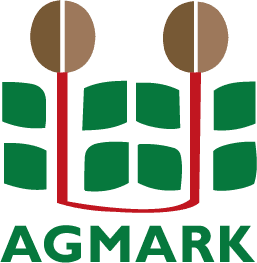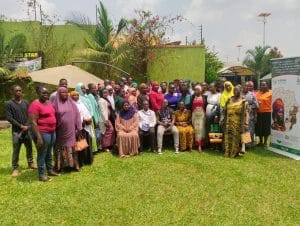We are pleased to report that significant training initiatives took place at the Busia and Namanga borders, aimed at enhancing the capacities of officials involved in cross-border trade. These initiatives, part of the Cross Border Trade Association (CBTA) empowerment project, were focused on equipping participants with essential skills in leadership, governance, and financial literacy. The training sessions were held on both sides of the Busia border, in Kenya and Uganda, and at the Namanga border, between Kenya and Tanzania, led by experienced trainers from AGMARK.
CBTA Leadership Training in Busia
The training sessions for CBTA officials in Busia were conducted over two days, with each day dedicated to officials from either side of the border. On February 13th, the training took place at Busia Gold Star Resort for the Ugandan officials from Busia Women Cross-Border Traders Cooperative, and on February 14th, it was held at Rowcena Hotel for the Kenyan officials from Busia Women Cross-Border Traders SACCO. The training aimed at enhancing the leadership and governance skills of the officials, as well as improving their financial literacy.
The evaluation of the CBTA training sessions in Busia showed overwhelmingly positive feedback. Participants rated their satisfaction levels highly, with 90% agreeing that they had a better understanding of leadership principles and good governance practices. Similarly, 85% of the trainees felt that the financial literacy module enhanced their understanding of financial concepts and strategies.
Women & Youth Leadership Training in Namanga
Following the successful training in Busia, a similar capacity-building initiative was conducted at the Namanga border between Kenya and Tanzania from March 24th to 29th, 2025. The training, which took place at AIC Namanga Church, focused on women and youth from both Namanga, Kenya, and Tanzania. It aimed to supervise and enhance the skills of CBTA officials in leadership, governance, financial literacy, and internal controls. Despite challenges such as participant mobilization, weather-related delays, language barriers, and varying literacy levels, the training sessions were impactful and well-received.
The training in Namanga faced some logistical challenges, including difficulties in mobilizing participants and translating course content into Kiswahili. However, the training successfully enhanced the participants’ understanding of leadership, governance, and financial literacy. The feedback highlighted the importance of preparing bilingual training materials and scheduling sessions during dry seasons to minimize disruptions.
Importance of Capacity Building for CBTAs
Capacity building for Cross Border Trade Associations (CBTAs) is crucial for several reasons:
- Enhanced Leadership and Governance: Effective leadership and governance are essential for the smooth operation of CBTAs. Training in these areas helps officials understand and implement best practices, ensuring compliance and fostering a culture of transparency and accountability.
- Improved Financial Literacy: Financial literacy is vital for managing resources, budgeting, and planning. By equipping officials with financial knowledge, CBTAs can make informed decisions that contribute to their sustainability and growth.
- Operational Efficiency: Capacity building enhances the overall efficiency of CBTAs by providing officials with the skills needed to manage operations effectively. This includes internal controls, strategic planning, and problem-solving.
- Empowerment and Engagement: Training initiatives empower officials and members by boosting their confidence and competence. This leads to greater engagement and participation in cross-border trade activities, driving economic growth and development.
The CBTA training initiatives in Busia and Namanga were crucial steps in empowering cross-border trade officials and members. By enhancing their skills in leadership, governance, and financial literacy, these trainings pave the way for more effective and structured cross-border trade. In the long run, this will strengthen relations with traders and officials across borders, increase trade volumes, and enhance social and economic development.
AGMARK aims to involve more women and youth in future CBTA trainings by implementing targeted outreach, flexible scheduling, supportive environments, and mentorship programs, while also providing financial incentives and recognizing their achievements.





